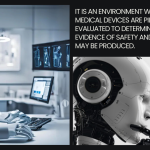Electric vehicles ,or electric cars are a great method for saving your money on monthly operating costs. EVs ownership is growing in US. EVs have become popular day by day. By the end of 2024,it is expected that the number of EVs will rise by 24% to 1.24M.
The benefits of electric cars are long, they are better choice for environment , they are also wallets friendly too. Availability, choice of model, improved battery life and electric range are very attractive for many people. Here are some advantages of electric vehicles these are environmental, economical and driving advantages of EVs.
The benefits of electric cars are long, they are better choice for environment , they are also wallets friendly too. Availability, choice of model, improved battery life and electric range are very attractive for many people. Here are some advantages of electric vehicles these are environmental, economical and driving advantages of EVs.
The benefits of electric cars are long,they are better choice for environment , they are also wallets friendly too. Availability, choice of model, improved battery life and electric range are very attractive for many people. Here are some advantages of electric vehicles these are environmental, economical and driving advantages of EVs.
Environmental impact
- Zero emissions: EVs produce no tailpipe pollutants like co2, nitrogen oxide and particle pollution which contribute air pollution and climate changes
- Reduced carbon footprints: EVs have a smaller carbon foot than gasoline powered cars over their lifetime. Even though the production of EVs batteries can be energy intensive,over time, the emissions saved from driving an EV significantly outweigh the initial manufacturing impact.
- Renewable Energy integration: Electric vehicles can be charged with renewable energy sources such as solar and wind energy, reducing their impact on the environment.
Financial Benefits of Electric Cars
While the retainer cost of electric cars can be higher, long-term financial savings are significant:
- Lower operating cost: As EVs use electricity to charge batteries, the monthly running cost is a fraction of cost for petrol or diesel. EVs have fewer moving parts than gasoline vehicles, reducing maintenance cost. There is no need for oil changes, fuel filters, or cambelts.
- Energy cost saving: Charging an EV is cheaper than ceremonial cars, especially when charging at home in off-peak hours. You can save 50 to 60% on fuel cost.
- Intensive and rebates: Many governments offer tax credits, rebates, and incentives for purchasing electric cars, which can significantly offset the initial cost.
- Resale value: As demand for electric cars increases, their sales prices are also increasing, making them more affordable over time. The vehicle’s retention rate is 66%.
Convenience Benefits of Electric Cars
- Home charging: Electric vehicle owners can use a home generator or home generator to charge their vehicles at night, eliminating the need to go to the gas station.
- Less frequent maintenance: Maintaining EVs is very different from conversational cars. Electric vehicles require fewer repairs due to their simpler mechanical systems,saving both time and trouble.
Performance Benefits of Electric Cars
- Instant torque: EVs have instant (maximum) torque, meaning when powered on from a standstill they provide quick acceleration and smoothness; that is why the driving experience in an electric car can be simply amazing.
- Silent operation: Electric vehicles make for a serene driving environment because they have no internal combustion engine.
- Regenerative braking: A number of EVs are equipped with regenerative braking systems that turn kinetic energy into electricity to help recharge the battery pack, increasing efficiency.
- Quiet and smoot: EVs are quieter and provide more comfortable driving because of their lack of engine noise and simple operation.
Innovative Technology of Electric Cars
- Advanced infotainment system: Many EVs are equipped with high-tech features like voice control, touch screen, regular software update, gesture control, smartphone integration, advanced navigation and facial recognition.
- Autonomous driving capability: Electric vehicles are often at the front line of self driving technology, offering advanced driver assistance systems that improve safety. While there are no currently available production cars that can drive themselves.
Changes in Manufacturing Processes
The transition to EVs has caused of significant change in the Automotive industry:
- Electric powertrain: EVs need specialized components like electric motor, batteries, leading to new manufacturing techniques.
- Green production: A growing cadre of automakers are making moves to ensure the state in which they build their EVs is as sustainable and green as the cars themselves, using recycled materials and even cutting pollution from factories.
Rise in Requirement of Electric Vehicle Parts
- Battery demand: EV production is leading to mass battery manufacture and innovation, presenting new opportunities for enterprises specializing in lithium-ion and other advanced batteries.
- Semiconductor demand: Electric cars require a lot of computer chips for power management which puts demand on automotive industry semiconductors.
Collaboration Among Automakers and Tech Companies
Car makers are also collaborating with each other; mostly they collaborate where they exist to jointly develop EV models.
- Partnerships for innovation: The shift towards EVs encouraged collaboration between tech companies and traditional automakers to develop better battery technology, autonomous driving systems, and connected services.
Impact on the oil and gas industry
- Decline in fuel demand: As electric vehicles become more popular, the demand for gasoline and diesel will decline and impact gas and fuel companies.
- Energy diversification: It is a strategy of increasing the variety of energy sources used to meet a country’s needs. Some oil companies are investing in charging infrastructure and sustainable energy as their diversification strategy.
EVs will soon cheaper to buy
Electric vehicles are expected to become cheaper to buy in the near future due to these key factors:
- Falling battery cost: The price of lithium-ion batteries, which makes up a very notable part of EVs cost,has been dropping continuously. As battery technology improves and economic scales increase, EVs become more affordable.
- Mass production: As demand for electric vehicles increases, automakers are scaling up production. This leads to cost reduction in manufacturing, making EVs cheaper to produce.
- Government intensive: Many Governments continue to offer subsidies, tax credits, and rebates in EVs purchases, reducing the upfront cost for buyers.
- Increases competition: More car manufacturers are entering the EVs market, increasing competition and driving prices down.
In 2025 and sooner, it’s expected that EVs could reach price sameness with gasoline cars, making them a more accessible choice for customers.
The Electric Car Revolution: Why You Should Be a Part of It
The electric car revolution is transforming the automotive industry and offers a lot of benefits for individuals and the environment. By driving EVs, you can help reduce carbon emission, fight climate change and contribute to cleaner air.
EVs also offer lower running cost,tax incentives and less maintenance. As charging infrastructure improves and governments offer incentives,EVs are increasingly accessible and more convenient.
Being part of this revolution means contributing to a cleaner,more sustainable future while enjoying modern, efficient transportation
Conclusion
Electric vehicles offer numerous advantages, from environmental technology and lower operating costs to cutting-edge technology and improved driving performance. EVs offer a wide range of benefits, making them life-changing in modern transportation. EVs also produce zero tailpipe emission and help reduce reliance on focal fuels.
Additionally, advancement in technology has made EVs more reliable and user-friendly, with longer ranges, faster charging time. It’s also enhancing features like independent driving and smart connectivity.
Governments and automakers are also encouraging the transformation in EVs by providing incentives, building charging infrastructure. Also introducing battery technology, making electric cars more accessible and convenient.
As global efforts to combat climate change increase, EVs are growing as a key solution, offering cleaner, quieter, convenient. EVs are more efficient transportation options for a sustainable future.








1 thought on “Advantages of Electric Vehicles”